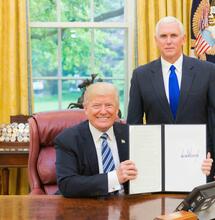UK Gov Urged to Rethink Drug Strategy

Hundreds of specialists have signed an open letter calling the UK Government to revisit its planned approach to penalise recreational drug users.
Signatories to the letter publicised by Transform Drug Policy Foundation include the Conservative Drug Policy Reform Group, the NHS Addictions Provider Alliance, and the Prisoners Advice Service. Together, they and many others have called on the government to rethink their proposals.
The letter comes as a response to a proposal published back in July titled, 'Swift, Certain, Tough: New Consequences for Drug Possession' This document is "aimed at adults caught in possession of low levels of so-called recreational drugs" and lays the framework, to what they hope will result in "demand reduction".
The government aims to stem the rise in drug use. It believes this would be best achieved by "proposing reforms to strengthen the response of policing and the criminal justice system to drug possession offences".
The new three-tier framework is structured to apply to all drug users with the ambition of obtaining large-scale behaviour change via swift, clear and specific consequences.
On the first two occasions of being caught in possession of drugs, the individual would receive a fixed penalty notice or official caution as a punishment. They will also have to adhere to clear stipulations, such as attending drug education classes and mandatory drug testing.
Suppose someone is caught in possession a third time. In that case, they will be prosecuted through the court system and possibly issued with an electronic tag. They may also receive an order prohibiting them from specific areas. Most controversially, they may have their passport confiscated and their driving licence removed.
You will be sentenced by the criminal courts if convicted of a drug offence. That is your punishment, be it a fine, imprisonment, or community service. However, one must question the validity of such action.
However, if someone seizes your passport or driving licence, that's a secondary punishment and would therefore be liable to challenge.
When approving legislation of this kind, a certificate must be signed to agree that it is compliant with human rights law. This action is not because you are not allowed to double punish."







